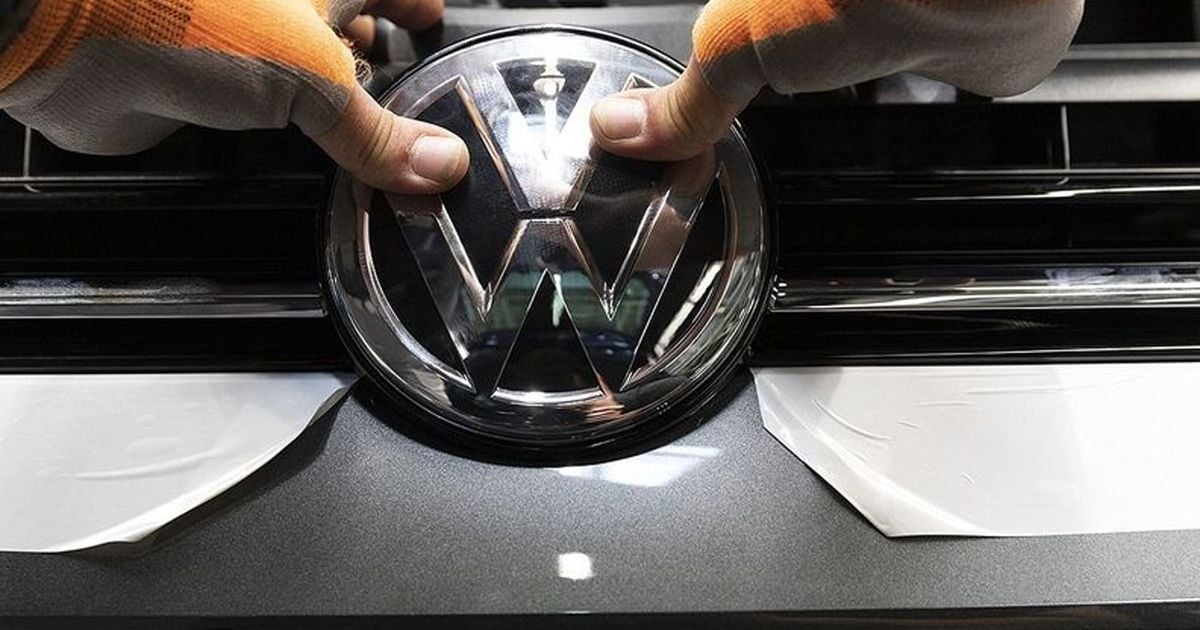
Volkswagen Group plans to build its first North American battery cell manufacturing plant in St. Thomas, Ont., as the automaker establishes a regional supply chain to build electric vehicles for Canada, the U.S. and Mexico.
The company and its in-house battery subsidiary PowerCo on Monday announced the landmark investment in the southwestern Ontario city midway between Toronto and Windsor.
Financial details were not immediately available.
Volkswagen said the plant is scheduled to begin producing battery cells in 2027. It shared few other specifics. The value of the investment and further details about production capacity are expected to be announced at an event in St. Thomas in the coming months.
Thomas Schmall, Volkswagen’s technology chief as well as chair of the PowerCo board, said the investment will drive the automaker’s battery strategy forward “at full speed.”
“Our gigafactory in Canada sends a strong message: PowerCo is on track to become a global battery player,” he said in a release.
Despite stiff competition, Canada has for months appeared to be the frontrunner for Volkswagen’s inaugural battery cell site.
In August, the company signed a memorandum of understanding with the Canadian government to cooperate on building a supply chain for battery-electric vehicles. And in December, the automaker singled out Canada as “one logical option” for the plant, though it cautioned other countries were also being considered.
The site for the new plant in St. Thomas is book ended by two railway lines, and has strong highway and utility links, according to the St. Thomas Economic Development Corp., which has spent about two years assembling the greenfield development site.
The 1,500-acre plot of land sits at the northeastern edge of the city, and until March 2 was partially part of the neighboring municipality of Central Elgin. Provincial legislation redrew the borders around the city earlier this month, putting the entire site within St. Thomas.
Vic Fedeli, the province’s minister of economic development, job creation and trade, told Automotive News Canada in early March that putting the megasite under one local government was the final component needed to “lure” the next big investor to the province.
At 1,500 acres, the site is large even compared to other sprawling automotive campuses in Canada.
Toyota Motor Manufacturing Canada Inc.’s complex in Woodstock, Ont., for instance, is roughly 1,000 acres. In Alliston, Ont., Honda of Canada Mfg.’s three-plant campus sits on 890 acres. The recently announced Nextstar Energy Inc. battery plant being built in Windsor, Ont., will occupy a 220-acre plot.
Fedeli said March 13 that the entire site in St. Thomas “is intended for Volkswagen.”
A full accounting of the investment, as well as possible government backing for the project will be announced at the upcoming event in St. Thomas, he added.
The latest EV battery supply chain investment in Canada comes as Volkswagen firms up its North American EV priorities.
The German automaker announced plans to build a $2 billion assembly plant in Blythewood, S.C., on March 3. The facility will assemble battery-electric SUVs and pickups for Volkswagen’s new Scout Motors brand.
Volkswagen already builds the ID4 electric crossover at its complex in Chattanooga, Tenn. Other models, including an Atlas-sized crossover, are expected to be produced at the plant in the coming years.
The company said Canada offers the “ideal conditions” to support Volkswagen’s North American electrification plans. It pointed to local supplies of raw materials and wide access to clean electricity as two of the key rationales for citing the plant in St. Thomas.
Larry P. Vellequette contributed to this report.